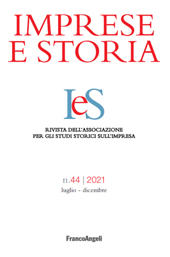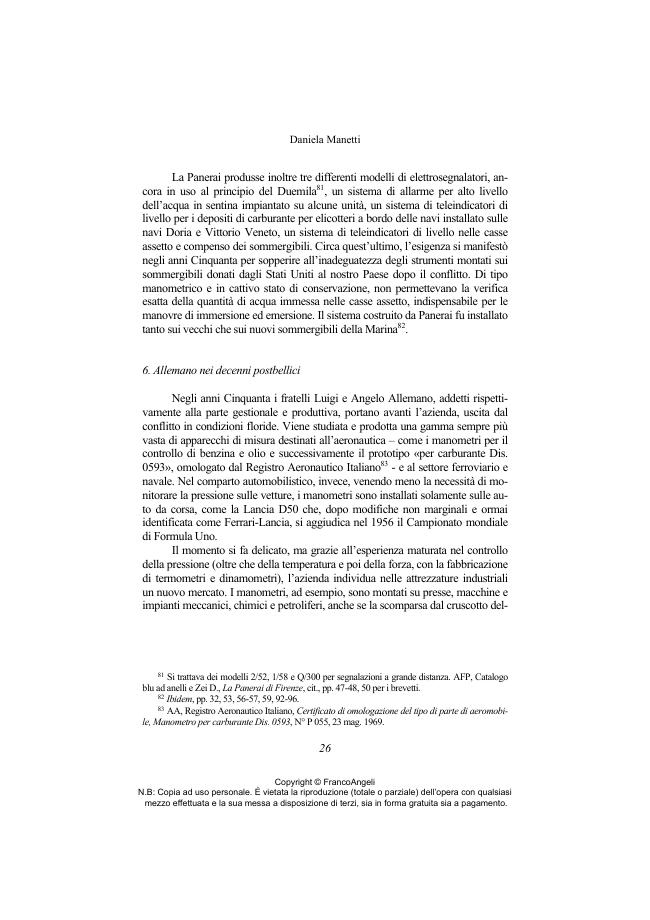Piccole imprese italiane fra crisi e trasformazione : Officine Panerai e Allemano
P. 5-46
For some years economic literature has been using the concept of resilience to show how a system is able to resist shocks and difficulties and develop productive, social and institutional changes. In this case, not only economic resilience is at stake, but also the adaptability of individuals and the community. Within compa-nies, routines or dynamic capabilities often form which are their real assets: a set of resources, processes and skills (such as, for example, scientific knowledge, tech-nical know-how, organizational skills) on which a company can count to cope with rapid external changes, crisis situations or negative events. In such a context, this work aims to compare the stories of two small personally managed companies - Officine Panerai of Florence and Allemano of Turin - which present strong similari-ties in their typologies of production (precision mechanics, mainly for military use) and in their evolution.
Albeit at different historical moments, they have adopted very similar strategies, focusing on diversification and product innovation, in par-ticular in the haute horology market. More generally, their resilience seems to sug-gest how the fabric of small and medium-sized enterprises is one of the keystones of Italy's economic resilience, despite decades of limitations, contradictions and delays, and how this system of flexible and innovative companies is the factor which, ultimately, still makes «the flight of the bumblebee» possible. [Publisher's text]
Fait partie de
Imprese e storia : rivista dell'Associazione per gli studi storici sull'impresa : 44, 2, 2021-
Articles du même numéro (disponibles individuellement)
-
-
Informations
Code DOI : 10.3280/ISTO2021-044001
ISSN: 1590-6264
KEYWORDS
- Resilience, dynamic capabilities, made in Italy, small and medium-sized enterprises, family business



